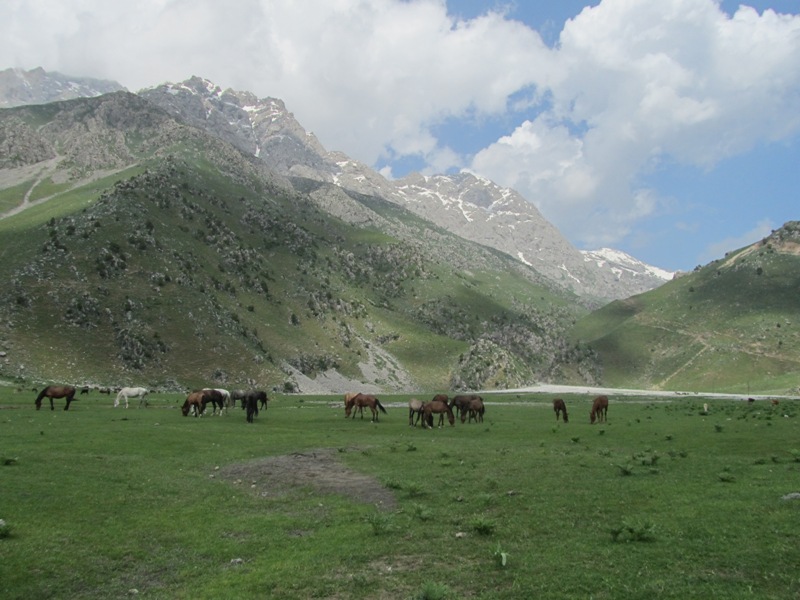
How do you usually picture Central Asia? Not at all, would be the answer in many cases. In my case the answer is: I picture it as a jigsaw… and it is my job to put the pieces together.
I first arrived in Central Asia in 2014 to start a job as a consultant for Natural Resource Management. Two of the things that puzzled me from the beginning were a) the vast areas of degraded soil and b) the fact that it took me 12 hours to get from Bishkek in Kyrgyzstan to Tashkent in Uzbekistan, one of the neighboring countries.
Both observations are linked to my current obsession: bringing together the countries of Central Asia in their effort to combat land degradation. You probably wonder: “Woman, what does the flight schedule have to do with it?” Stay with me –I will tell you.
Actually a direct flight from Bishkek to Tashkent takes 50 minutes but….. But direct flights are only available twice a week. The other days you will have to go via Almaty in Kazakhstan, which will take 12 hours. I asked my colleagues for the reason. “It reflects the limited cooperation between the countries”, was their answer. What that meant for our work I would experience over the next month.
In the work we found that land degradation has many faces in the region: salinization, deforestation and overgrazing. Even though the patterns are similar in the different countries there was no serious exchange to be seen among the countries. So these were the key issues we identified: land degradation and limited cooperation.
This was when we came across the Economics of Land Degradation (ELD) Initiative. It is a global initiative on the economic benefits of land. It aims to make the economics of land degradation an integral part of policy strategies and strives to increase awareness of the costs and benefits of land.
It sounded like an approach that could help us to combat land degradation. To tackle the issue of cooperation though, we had to go beyond that –and we did. The best thing about the ELD Initiative for our work was that it provided a standardized methodology to tackle the inaction in sustainable land management. The core piece of each study is a cost-benefit-analysis, which includes economical, social and ecological factors.
Taking the common methodology as a basis, we designed the Central Asian ELD study in a way that will hopefully trigger the cooperation between the countries. Instead of researching the same topic in each country we assigned different areas of research to the different countries. A jigsaw!
In Kyrgyzstan we conducted the study on High mountain pastures, in Tajikistan on piedmont pastures, in Turkmenistan on desert pastures, in Uzbekistan on irrigated lands and in Kazakhstan on forests. In order to gain information on the whole range of land degradation issues in the region, there had to be shared discussions among the countries.
Even though the researched ecosystems were different, the methodology was the same and well known to all stakeholders. This may act as a common basis for cooperation among the countries. Moreover, the ELD approach brings in the economical sector and also delves into the topics of climate change and biodiversity. So an additional hope is that it will be discussed across the different sectors.
Now all the studies are about to be finalized and we plan to have a regional workshop bringing the actors from the different countries together. At this event we will have to prove that all our smart theories on cooperation and exchange will translate into practice and action.
If the outcome is positive, it will prove that the ELD approach can support Central Asia in combating land degradation. It will also help shape a common regional profile for soil management and climate issues across sectors and countries so that it may be presented on the international stage.
Blogpost by Stefanie Ettling, #GCARD3 Social Reporter – stefanie.ettling(at)giz.de
Picture courtesy of Stefanie Ettling (Regional Programme for Sustainable Use of Natural Resources in Central Asia in the Deutsche Gesellschaft für Internationale Zusammenarbeit (GIZ))
This post is part of the live coverage during the #GCARD3 Regional Consultation for Central Asia and the Caucasus. This post is written by one of our social reporters, and represents the author’s views only.


